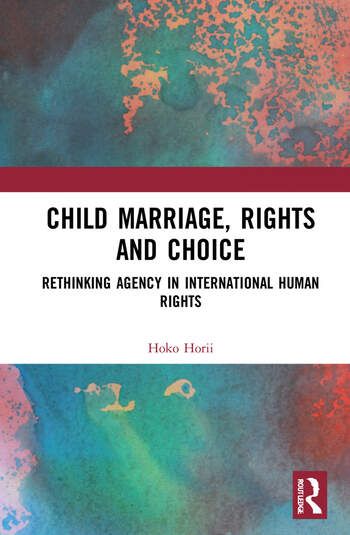
This book addresses the issue of agency in relation to child marriage.
In international campaigns against child marriage, there is a puzzle of agency: While international human rights institutions celebrate girls’ exercise of their agency not to marry, they do not recognize their agency to marry. Child marriage, usually defined as ‘any formal marriage or informal union where one or both of the parties are under 18 years of age’, is normally considered as forced – which is to say that it is assumed that are not capable of consenting to marriage. This book, however, re-examines this assumption, through a detailed socio-legal examination of child marriage in Indonesia. Eliciting the multiple competing frameworks according to which child marriage takes place, the book considers the complex reasons why children marry. Structural explanations such as lack of opportunities and oppressive social structures are important, but not exhaustive, explanations. Exploring the subjective reasons by listening to children’s perspectives, their stories show that many of them decide to marry for love, desire, to belong to the community, and for new opportunities and hopes. The book, then, demonstrates how the child marriage framework – and, indeed, the human rights framework in general – is constructed on too narrow a vision of human agency: One that cannot but fail to respect and promote the agency of all, regardless of gender, race, religion, and age.
This book will be of interest to scholars, students, and practitioners in the areas of children’s rights, legal anthropology, and socio-legal studies.